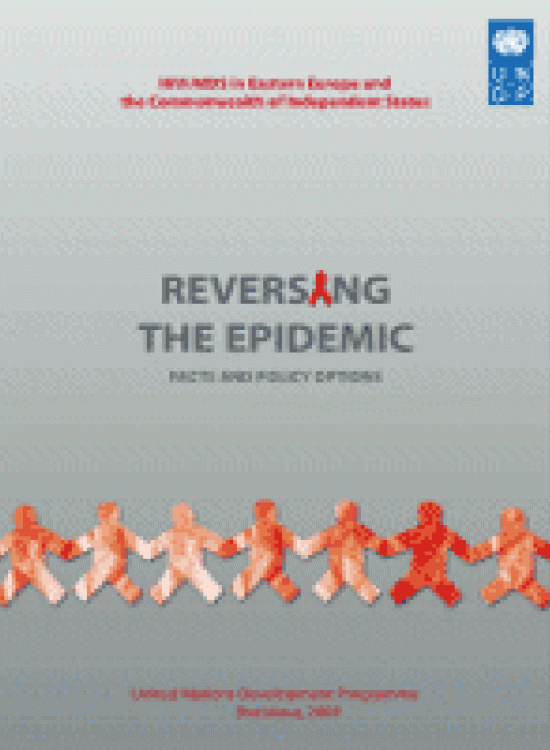Reversing the Epidemic

UNDP (United Nations Development Programme). 2004. Reversing the Epidemic. New York.
Reversing the Epidemic
Several countries in the region are experiencing some of the fastest growing HIV epidemics in the world. The report addresses the epidemiological trends in the countries of the region, with specific information about trends among key risk groups, including intravenous drug users, sex workers, prisoners, and homosexual men. It explores the economic, poverty, and human development impact of HIV/AIDS on the region, the human rights dimension, and the trade-offs between the prevention and treatment of HIV/AIDS. The report also warns that the possibility of significant further growth is very real, and could lead to a full-fledged epidemic. Lack of proper access to health care systems for care and treatments is worsening the current condition in the region, especially in the poorer states. However, the political will and commitment to effectively address the problem of HIV/AIDS in Eastern Europe is promising. The report notes that 70 percent of newly registered HIV infections in the Commonwealth of Independent States (CIS) were attributed to drug use injection during 2001-2002. The impact of HIV on human development in the region is pervasive: it threatens economies, national security, family and community stability, intellectual and industrial growth, and public health. This is why efforts to improve public health institutions alone are insufficient and must be accompanied by broader initiatives involving governments, the private sector and communities. Finally, the report emphasizes the need for the active involvement of civil society groups in order to combat the spread of HIV/AIDS.